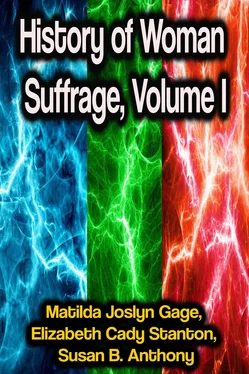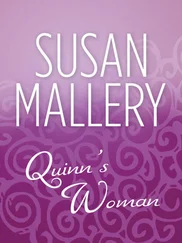Between May, 1856, and February, 1857 (not counting my engagement with the Aid Committee), I gave some fifty Kansas lectures in the States of Vermont, New Hampshire, Massachusetts, Connecticut, Pennsylvania, and New York, followed occasionally by one or two lectures on the legal and political disabilities of women; receiving more invitations on both subjects than I could possibly fill.
My experiences in these semi-political labors were often racy, never unsatisfactory. In a public conveyance one day, an honest old Pennsylvania farmer asked if I was "the lady who made an appointment to speak in his place on Kansas, and did not come?" I replied that I had filled all the appointments made for me with my knowledge; that I made a point of keeping my promises. "I believe you, ma'am," said he. "I suspicioned then it was jest a republican trick. You see, ma'am, our folks all are dimocrats and wouldn't turn out to hear the republican speakers; so they appointed a meeting for you and everybody turned out, for we'd hearn of your lectures. But instid of you, General D—— and Lawyer C—— came, and we were mad enough. I was madder, 'cause I'd opened my house, seein' as it was the largest and most convenient in the neighborhood."
Occasionally I stumbled on a loose segment of woman's sphere, even among the friends of "free Kansas." In a populous Vermont village, at a meeting called for the purpose, a committee was appointed to invite me to speak, composed of the two clergymen of the village and Judge S——. Reverend W—— excused himself from the service on the ground of "conscientious scruples as to the propriety of women speaking in public." Judge S——, a man who for a quarter of a century had, by a racy combination of wit and logic, maintained his ground against the foes of temperance and freedom, with inimitable gravity thanked the audience for the honor conferred on him; adding, "I have no conscientious scruples about getting desirable information wherever I can find it."
In Sinclairville, Chautauque County, New York, where I arrived late, in consequence of a railroad accident, I found a crowded church. A gentleman introduced to me as "Mr. Bull" was sitting at a table in the extreme front corner of the spacious platform, recording the names and advance payments of a class in music, which, as I had been told outside, was being organized by a gentleman who had arrived with the news of my probable detention.
During the next half hour gentlemen rose at three several times and requested Mr. B—— to "postpone the class business till the close of the lecture: that people had come from a distance to hear the lecture, and were anxious to return home, the night being dark and rainy." "I will be through soon. I like to finish a thing when I begin." "There'll be time enough," were the several replies, given in a tone and with an emphasis that suggested to my mind a doubt of the speaker's sympathy with my subject. When the clock pointed to eight, I quietly took my seat in the desk and was smoothing my page of notes when there fell on my astonished ear—"I was about to introduce the lady speaker, but she has suddenly disappeared." Stepping forward, I said, "Excuse me, sir; as the hour is very late I took my place to be in readiness when you should be through with your class." "Madam, you will speak on this platform." "I noticed, sir, that I could not see my audience from the platform, also that the desk was lighted for me." "Madam, you can't speak in that pulpit!" "This is very strange. Will you give me your reasons?" "It's none of your business!" "Indeed, sir, I do not understand it. Will you give me your authority?" "It's my pulpit, and if you speak in this house to-night you speak from this platform!" "Excuse me, sir; I mistook you for the music-teacher, who, as I was told, was organizing a class in music." And stepping quickly to the platform to restore the equanimity of the house, I remarked, as indicating my position, that my self-respect admonished me to be the lady always, no matter how ungentlemanly the treatment I might receive; that the cause of humanity, the cause of suffering Kansas was above all personal considerations, and proceeded with my lecture.
At the close, Mr. B—— arose and said: "I owe this audience an apology for my ungentlemanly language to Mrs. Nichols. I am aware that I shall get into the public prints, and I wish to set myself right." A gentleman in the audience rose and moved, "that we excuse the Rev. R. B—— for his ungentlemanly language to Mrs. Nichols to-night, on the score of his ignorance." The motion was seconded with emphasis by a man of venerable presence. "Friends," I appealed, "this is a personal matter; it gives me no concern. It will affect neither me nor my work. Please name suitable women for the committee of relief which I am here to ask." Business being concluded, I turned to Mr. B——, who was shut in with me by a press of sympathizing friends, and expressed my regret, that he should have said anything to place him under the necessity of apologizing, adding, "but I hope in future you will remember the words of Solomon: 'Greater is he that controlleth his own spirit, than he that taketh a city.' Good-night, sir." I learned that a few months before he had prevented his people from inviting Antoinette Brown to speak to them on Temperance, by declaring that "he would never set his foot in a pulpit that had been occupied by a woman." When three weeks later I heard of his dismissal from his charge in S——, I could appreciate the remark of his brother clergyman in a neighboring town, to whom I related the incident, that "Brother B—— is rather given to hooking with those horns of his, but he's in hot water now."
In the winter and spring of 1856, I had, by invitation of its editor, written a series of articles on the subject of woman's legal disabilities, preparatory to a plea for political equality, for the columns of the Kansas Herald of Freedom , the last number of which went down with the " form " and press of the office to the bottom of the Kansas river, when the Border ruffians sacked Lawrence in 1856.
In March, 1857, I again returned to Kansas, and with my daughter and youngest son, made a permanent home in Wyandotte County.
The Constitution was adopted in November, 1859, by popular vote. In January, 1860, Kansas having been admitted to the Union, the first State Legislature met at Topeka, the capital of the new State. I attended its sessions, as I had those of the Convention, and addressed both in behalf of justice for the women of the State, as delegate of the Kansas Woman's Rights Association. This Association was formed in the spring of 1859 with special reference to the Convention which had already been called to meet in the July following, in the city of Wyandotte.
The Association—if I recollect aright—numbered some twenty-five earnest men and women of the John Brown type, living in Moneka, Linn County; John O. Wattles, President; Susan Wattles, Secretary. Wendell Phillips, treasurer of the Francis Jackson Woman's Rights Fund, guaranteed payment of expenses, and the Association sent me, with limited hopes and unstinted blessings, to canvass the principal settlements in the Territory, obtain names to petitions and represent them—if allowed by courtesy of the Convention—in behalf of equal civil and political rights for the women of the State to be organized. I was appealed to as the only woman in the Territory who had experience and could take the field, which was I believe true.
We had no material for Conventions, and the population was so sparse, distances so great, and means of conveyance and communication so slow and uncertain, that I felt sure an attempt at Conventions would be disastrous, only betraying the weakness of our reserves, for I must have done most, if not all the speaking.
It was the policy of the Republicans to "keep shady," as a party. John Wattles came to Wyandotte before I addressed the Convention, counseled with members, and reported to me that "I didn't need him, that it was better that no man appear in it."
Читать дальше












